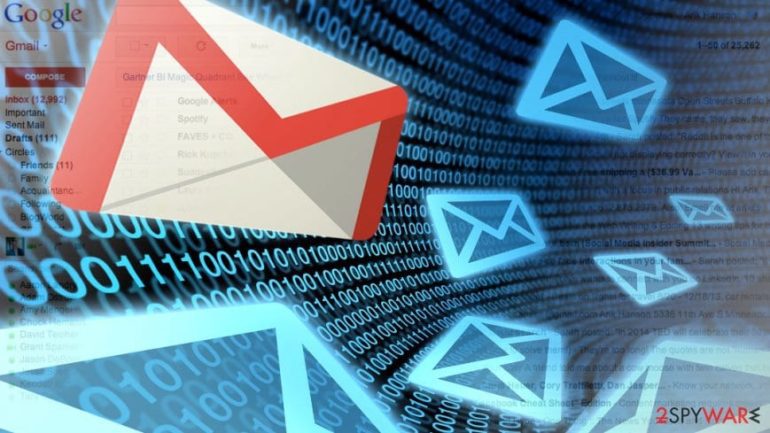Google is still sorting out what looks like an elaborate prank — hackers are into personal Gmail accounts and sending out strange emails such as weight loss and growth supplements for men advertisements. More info below, and we’ll wait to see how Google gets to the bottom of this and puts an end to it. In the meantime, let’s also look at some tips to tell spam from legit emails.
For the most part, Gmail does a good job at filtering out spam emails. A small number of users, however, reported having their inbox bizarrely flooded by suspicious ads. Even more strange is how the spam messages were reportedly sent from their own accounts.
A Sinister April Fool’s Prank?
Initially posted on Gmail’s Help Forum, some users came forward to report the incident. They shared how the spam emails seemed like they were sent, and continuing to be sent, from their own Gmail accounts. That is despite having, subsequently, set-up two-factor authentication and changed their passwords.
The spammers even forged email headers to make the messages appear like they came from users via a Canadian telecommunications company, Telus. This is how the spam emails got past Gmail’s spam filters.
Outsmarting Spam Filters
The spam emails were automatically filed by Gmail together with messages found in an effected user’s sent folder. That’s because they appeared to be coming from the same user.
Although the spam campaign has only affected a small number of Gmail users, one can’t help but feel alarmed by the implications: could a larger scale, similar hack target many or even all Gmail users?
While Google is still setting up countermeasures to neutralize such nuisances, learning to identify spam, and to not fall victim to identity theft, should be your priority at the moment.
5 Ways to Tell If An Email Is Spam
A few spam campaigns get right past your email service’s spam filters. That’s how clever spammers have become these days. When that happens, you’re virtually the last line of defense. It goes without saying that you have to know the many signs that an electronic correspondence is bogus.
Ends Up in the Spam Folder
An email found in the spam folder is obviously suspect. However, we’ve seen people rummage through their spam folder like there’s something important in there. The fact is that legit emails don’t end up as spam unless you accidentally categorized them as such.
In some cases, emails from certain websites end up in the said folder. Deal with those sites individually and determine whether you really want to push countless YouTube notifications into your inbox.
Random Email Address
Most credible or legitimate companies send emails through a server based on their company’s official website (e.g. [email protected]). Seeing a long string of numbers before the “@” sign? Is the name before the “.com” that of a free email service? If so, you should question the legitimacy of the email.
Generic or Vague Greeting
Anyone sending you a genuine correspondence wants to get your attention so they’ll always address you directly. In fact, they’ll address you using your first or last name and never as a “Valued Customer”.
If an email refers to you as “Dear Valued Customer,” you can bet that message is spam.
Dubious, Poorly Made Content
When an email from some company asks you to do something urgently, it often doesn’t bode well. Keep an eye out for emails saying you need to rectify something on that same hour or within the day.
They will likely be spam. If there is really something you need to do for your online account, trusted companies won’t direct you there via links. Most will simply advise you to log into your account. Steer clear of emails that include links that you’re not familiar with.
Grammatical and spelling errors in an email is a HUGE red flag.
Demands Personal Information
As a rule of thumb, any personal information should never be exchanged via email. In fact, most establishments you’re connected to won’t even ask for your personal details online because they’ll have them on hand.
If an email asks you for personal information, don’t bother doing anything. Just send that email straight to your trash folder. Personal info is only meant to be shared through secure, encrypted forms. Otherwise, you run the risk of having them whisked off by hackers and snoopers.
The fact that spammers are getting more clever at tricking people only means we have to step up our game in foiling their duplicitous schemes. Knowing their strategies in-depth is an essential first step in the right direction.
24/7 Email Support at HelloTech
Need a hand managing your inbox? Give us a ring anytime and we’ll help you stay organized and be in the loop. Our Techs can even assist with sorting out your account settings and contact list!


